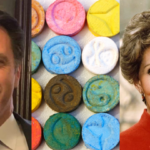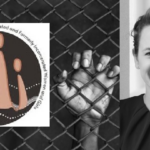Can police interview a drunk person?

Imagine that during a night-out, you get into a drunken fight and are arrested and taken back to the police station.
While you are still drunk, police want to put you in an interview room and ask you questions about the events of the night.
Are they supposed to do this?
Police Policy
According to NSW Police Code of Conduct for CRIME, police are supposed to wait until an intoxicated person is sober before conducting an interview.
This policy recognises that evidence collected from a person who is very drunk is at risk of being unreliable.
However, the fact that you are drunk does not necessarily prevent police from conducting an interview and seeking to use that evidence against you in court.
The case of Nelson
Chantal Nelson was charged with aggravated dangerous driving causing death after police alleged that she crashed while driving her de facto partner, John Bastow, and three children.
The children were fortunate to survive but her partner, allegedly sitting in the front passenger seat, tragically lost his life.
At the scene of the crash, Nelson told several people that she was not the person in control at the time of the crash. She explained that her de facto partner wanted a cigarette but she didn’t give him one, and because of this he shook the wheel.
But while she was in hospital, a constable asked her if she was driving, to which she replied:
“I can’t remember. I think so, or was it John?”
She was drunk at the time and the constable did not properly caution her. She was also in shock, having just heard that her partner had been killed.
Is the evidence admissible in court?
Nelson failed to object to the incriminating evidence of the hospital interview at trial. She ended up losing her case.
She sought to appeal the decision on the basis that it was unfair to have let the evidence in, and that a ‘miscarriage of justice’ had therefore occurred. In order to be successful, Nelson had to establish that the trial judge should not have allowed the conversation into evidence.
Unfortunately for Nelson, she did not convince the court that this had been the case.
But the court did note that there were circumstances where the court could have excluded the evidence.
The court also noted, where the evidence is admitted, the jury must be warned to consider the defendant’s intoxicated state when assessing its weight.
When can the evidence be excluded?
There are three main sections of the Evidence Act NSW that confer power on courts to exclude interviews that occur while a person is severely intoxicated on drugs or alcohol.
Section 90 of the Evidence Act 1995 gives magistrates and judges the discretion to exclude evidence if it would be ‘unfair’ to a defendant to admit it. In making that decision, the court will consider a wide range of matters including the nature of the evidence and the circumstances under which it was taken.
Section 137 of the Evidence Act says that a court must refuse to admit evidence adduced by the prosecution if the value of the evidence is outweighed by the danger of unfair prejudice.
In reaching that determination, the court will look at the importance of the evidence and the risk that the jury may place far too much weight upon it.
Section 138 of the Evidence Act deals with improperly obtained evidence, which may include confessions elicited without a proper warning being given. To exclude evidence under the section, it must be shown that there was an impropriety or contravention of Australian law and that the desirability of admitting the evidence is outweighed by the undesirability of admitting evidence of that type.
If the evidence is admitted, the judge will need to warn the jury that it may be unreliable and that the jury should not place undue weight upon it.
Participating in a police interview can be risky even if you are sober, as you may say things that you don’t mean, or that are confused or inaccurate, or that can otherwise be misinterpreted. Being drunk or high can make the situation even worse. Your best bet is to decline an interview until you have received advice from an experienced criminal lawyer, and only participate if your lawyer has advised you to do so.






